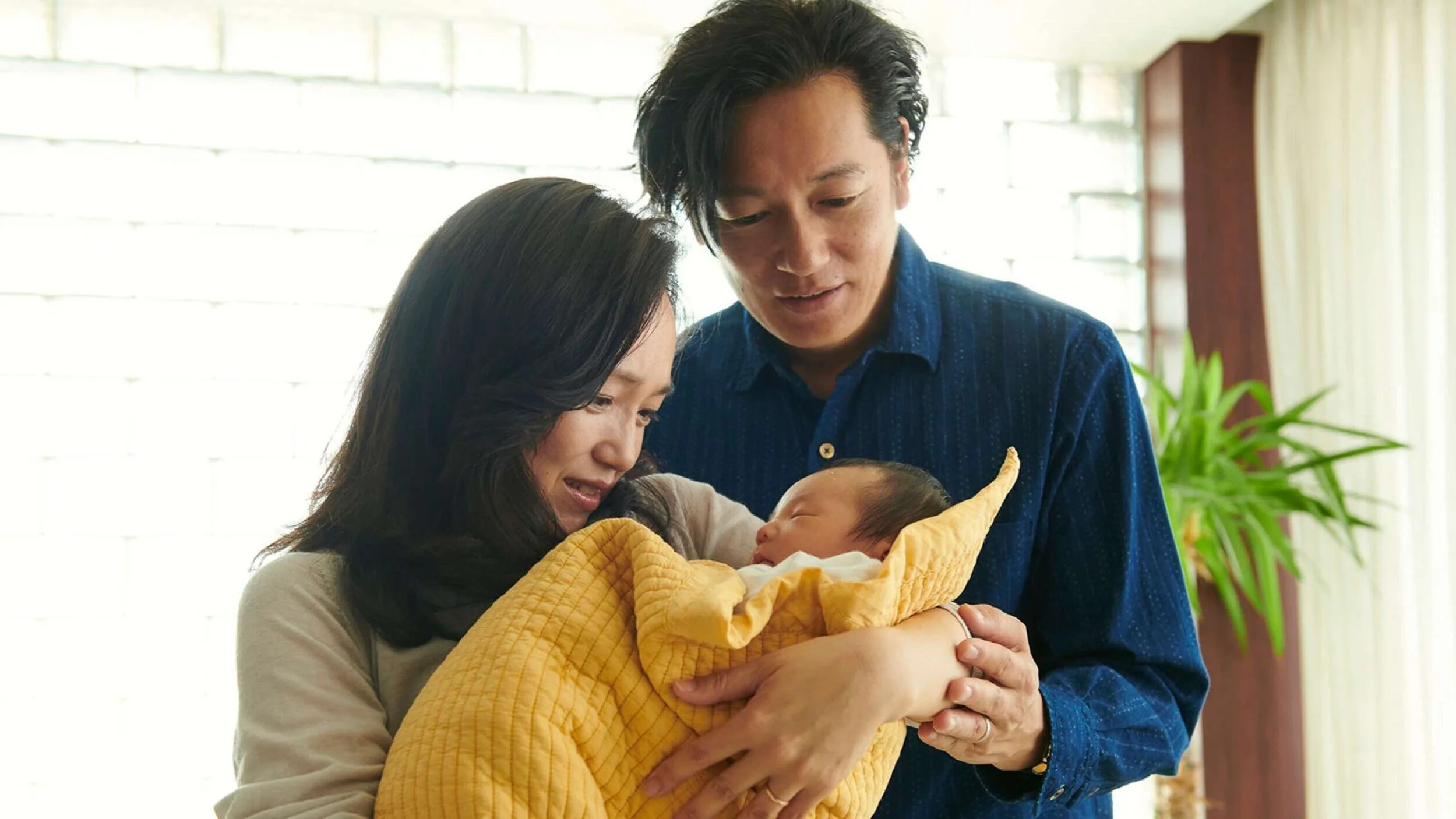True Mothers
Japan’s Naomi Kawase delivers an involving drama about a birth mother and an adoptive mother.
Naomi Kawase has a special place in Japanese cinema as the first woman from that country to acquire international fame. She is particularly admired in France but has won less acclaim here with only three of her feature films finding a British distributor. I myself much admired Still the Water which she made in 2014 but was somewhat disappointed by Sweet Bean released here in 2016. Now we have True Mothers and my reaction is mixed although it is clearly once again a heartfelt work albeit one based on an outside source, a novel by Mizuki Tsujimura (Kawase is co-author of the screenplay adapting it).
True Mothers is a film about adoption and throughout it tells its story by moving back and forth in time, something that is done without losing clarity. But, despite that consistency of approach, it stills comes across as a film of two halves. The first introduces us to the Kurihara family, Kiyokazu (Arata Iura) and his wife Satoko (Hiromi Nagasaku) and the boy they had adopted some six years earlier, Asato (Reo Sato). This section incorporates a long flashback to reveal how the couple had been unable to have a child of their own and had ultimately been influenced by seeing a promotion on TV about an adoption agency in Hiroshima. This is known as Baby Baton and is being run by Shizue Asami (Miyoko Asada). It's an establishment that specialises in placing with couples who can’t conceive babies whose mothers are unable to care for them - and it is indeed where Asato had found an adoptive mother in Satoko.
This first part of the film is admirably done and the couple's past history unfolds alongside scenes depicting a school issue that arises when Asato is accused by another boy of causing him to suffer a fall by pushing him. Satoko is keen to accept Asato's denials but can't feel as certain about it as she would have done if she had been his birth mother. This is the kind of telling detail that makes this first section so compelling because it smacks of real life rather than of melodrama. What follows continues the story both by developing what is happening at this period in the boy's life and by inserting further flashbacks. But what renders this a film of two halves is the fact that in the second half the main character is no longer Satoko but Hikari Katakura (Aju Makita).
Hikari is in fact the birth mother of Asato so both sections are parts of the same tale but it is Hikari's past history that now dominates. This feels entirely apt at first since it shows us how Hikari, a 14-year-old schoolgirl, had fallen in love naively with a student (Taketo Tanaka) who had made her pregnant. We see then how the girl's parents had brought her to Baby Baton to give birth there, thus leading to the adoption already seen. Thus far the film holds together well but, in what is a very long work (140 minutes), the narrative about Hikari continues at length passing through episodes that can sometimes feel rather arbitrary as well as over-extended. To all this a mystery element is added when a girl who may or may not be Hikari turns ups to confront the Kuriharas making demands and claiming to be the mother of Asato. Ultimately we do get an explanation of what is going on here, but it is not wholly convincing.
True Mothers is very well acted by all concerned and not least by Hiromi Nagasaku who makes us feel deeply for Satoko, a fact that makes it all the more disappointing when her prime role in the tale is usurped by Hikari even though Aju Makita plays that role most persuasively. However, the main weakness is that the second half comes to feel bloated with extra characters and situations added that contribute less than they should to the story if it is to hold together firmly.
As I watched True Mothers, I found myself both admiring and questioning it and that is also due to what Naomi Kawase herself brings to the film. Still the Water was a poetic work that made clear her fascination with the natural world and gave the piece a pantheistic tone. True Mothers again expresses something of that spirit and contains too an attitude to children which sees giving birth as a miracle, a feeling that is extended to what Satoko experiences when, albeit without literally giving birth, she becomes Asato's mother. This attitude to life marks Kawase as someone who is optimistic about human nature and in this film she conveys an all-embracing sympathy for the main characters without exception. This gives a welcome warmth to the film, but it's also something that at times - and especially in the second half - can bring Kawase close to sentimentality. However, the fact that this aspect is born of such deep-rooted beliefs prevents one from dismissing the film on this score. Instead, one accepts it as part of what gives True Mothers its deep sense of humanity. That's a quality to be admired, but one is still left with the impression that overall this is an uneven film and one decidedly at its best in the first half.
Original title: Asa ga Kuru.
MANSEL STIMPSON
Cast: Hiromi Nagasaku, Arata Iura, Aju Makita, Reo Sato, Hiroko Nakajima, Tetsu Hirahara, Taketo Tanaka, Miyoko Asada, Gô Rijû, Ren Komai.
Dir Naomi Kawase, Pro Yumiko Takebe, Screenplay Naomi Kawase and Izumi Takahashi, from the novel by Mizuki Tsujimura, Ph Naoki Sakakibara, Yûta Tsukinaga and Naomi Kawase, Pro Des Setsuko Shiokawa, Ed Tina Baz and Yôichi Shibuya, Music Akira Kosemura and An Tôn Thât.
Kazumo/Kino Films/Kinoshita Group/Kumie-Curzon.
140 mins. Japan. 2020. Rel: 16 April 2021. Available on Curzon Home Cinema. No Cert.


